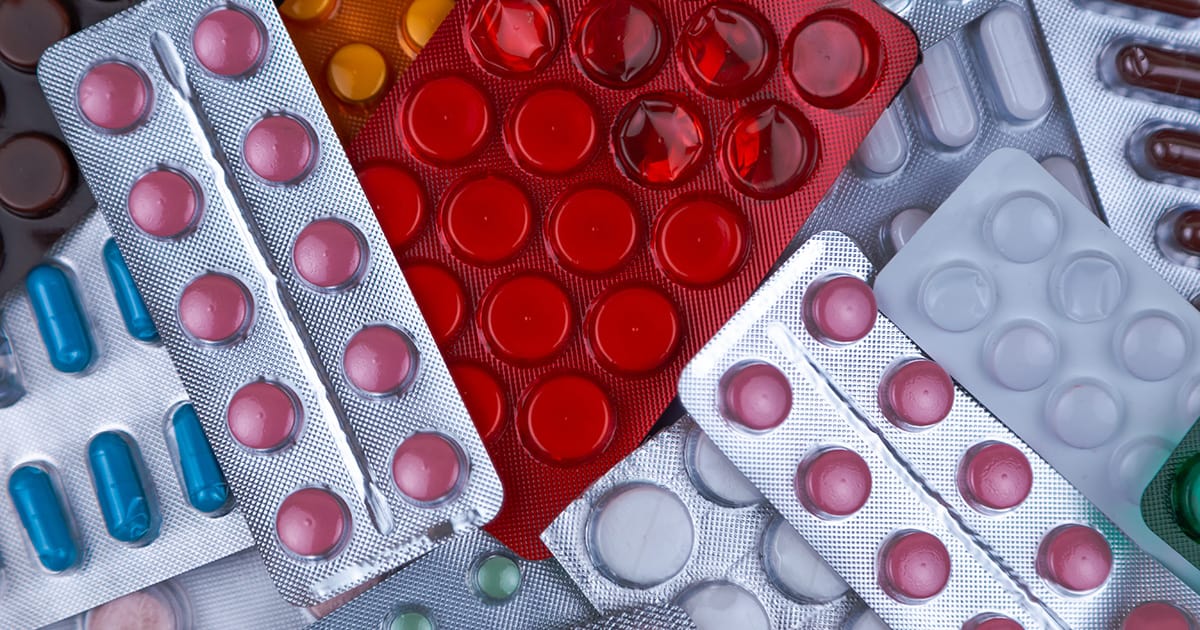
There has been a lot of messaging recently on social media about which supplements and over the counter medicines may or may not be safe to take during the COVID-19 outbreak. I’ve seen warnings about elderberry and ibuprofen. Let’s sort through it.
What’s the link with ibuprofen?
Ibuprofen is an anti-inflammatory that can be used for fever and aches associated with viral illness. It is theorized that dampening the body’s immune response, or inflammation, could actually make the infection worse. The British
Medical Journal described other studies that showed worse outcomes when ibuprofen is used in respiratory illnesses (1).
But it appears that there is not full agreement here. Science Alert first reported that the World Health Organization (WHO) recommended against using ibuprofen for COVID-19 symptoms. Then they retracted that based on a post on the WHO’s twitter feed (2). WHO now says they don’t recommend avoiding ibuprofen. Confusion has ensued because the original social media posts are still circulating.
There’s more to the story with ibuprofen:
The link with ibuprofen and COVID-19 also stems from how the virus actually attacks our bodies (3). The COVID-19 virus uses a particular receptor called ACE2 to infect lung and other tissues. It turns out that certain medicines cause the body to make more ACE2 receptors. Those medicines include ibuprofen, and several diabetes and blood pressure pills like ACE inhibitors, ARBs, glitizones. So, it could be that people who take these medicines have more ACE2 receptors giving the virus more points of entry into the lungs. That could explain why people on ibuprofen and with diabetes and high blood pressure are getting sicker from COVID-19. Obviously, people on chronic medicines shouldn’t go off of them without discussing it with their prescribing doctor.
- My recommendation is to avoid ibuprofen and the whole class of non-steroidal anti-inflammatories (NSAIDS) which also includes naproxen, aspirin, ketorolac, celecoxib, diclofenac, indomethacin, ketoprofen, and more.
Elderberry and inflammation
Another warning going around social media is that anti-viral herbs like elderberry may make COVID-19 worse. How could that be? Well, we know that elderberry increases certain inflammatory chemicals and is helpful in the treatment of influenza (4). The immune system relies on controlled inflammation to ward off illness. The problem is that the COVID-19 virus can sometimes involve a severe, out of control inflammatory response that causes widespread damage (5). So, the fear is that elderberry might make a COVID-19 infection worse. We don’t have studies proving it one way or the other.
- My recommendation is to avoid elderberry given that we simply don’t know about its safety with COVID-19.
How about other Anti-viral herbs?
For colds and flu, normally I do recommend anti-viral herbs like astralagus, andrographis, green tea extract, reishi and other medicinal mushrooms. My big caveat with these is that we don’t have much experience using these herbs with COVID-19.
Advice for COVID-19
COVID-19 is caused by a new virus. The medical world has very little experience with it. Doctors are trying to learn from their colleagues around the world and looking back to previous outbreaks of similar infections like SARS and MERS. This is a quickly evolving situation and recommendations are changing daily. So, what to do? For now, I would recommend sticking with the basics:
Try to avoid spreading the virus:
- Wash hands frequently
- Cover coughs and sneezes with your arm/elbow, not your hand
- Limit contact with other people
- Clean and disinfect your space frequently
- Stay home if you are sick
Try to maintain your own health:
- Eat a healthy diet. In particular: eat all of the colors of the rainbow in vegetables/fruits every day (red, orange, yellow, green, blue/purple, and beige like garlic and onion).
- Eat anti-inflammatory fats like olive oil, nuts, wild salmon
- Drink antioxidant rich teas throughout the day: green tea especially.
- Get enough sleep (7-9 hours for adults)
- Exercise daily either indoors or by taking brisk walks outdoors
- Manage your stress, meditate, pray if you are so inclined
- Stay connected to friends and loved ones through phone and internet
- Take frequent breaks from the newsfeed and social media each day
- Take a moment each day to be grateful for the blessings you do have
And what supplements to take? Stick with the basics:
- Vitamin C (buffered) 500mg several times a day
- Vitamin D if you are deficient. Most people need 2000-5000IU. Getting you Vitamin D level checked is helpful to know how much you need.
- Zinc lozenges if you are feeling like you are coming down with a cold.
Please be cautious in this time of uncertainty. Call your doctor if you develop fever with cough and difficulty breathing. Guidance on testing changes almost daily. Please don’t expose your community to the virus if you are unwell. Containment is our best hope of limiting the damage that the virus will do. Also, check out the CDC’s website for more specific guidance. This is one of the best resources I have found for patients: https://www.cdc.gov/coronavirus/2019-ncov/index.html?CDC_AA_refVal=https%3A%2F%2Fwww.cdc.gov%2Fcoronavirus%2Findex.html
Dr. Bronwyn Fitz, MD is double board certified in Obstetrics and Gynecology and Integrative Medicine. Contact her for a free 15-minute consult. She is seeing new patients through Video Visits.
References:
(1) https://www.bmj.com/content/368/bmj.m1086
(2) https://www.sciencealert.com/who-recommends-to-avoid-taking-ibuprofen-for-covid-19-symptoms
(3) https://www.thelancet.com/journals/lanres/article/PIIS2213-2600(20)30116-8/fulltext
(4) https://www.ncbi.nlm.nih.gov/pubmed/11399518
(5) https://www.ncbi.nlm.nih.gov/pubmed/28466096
